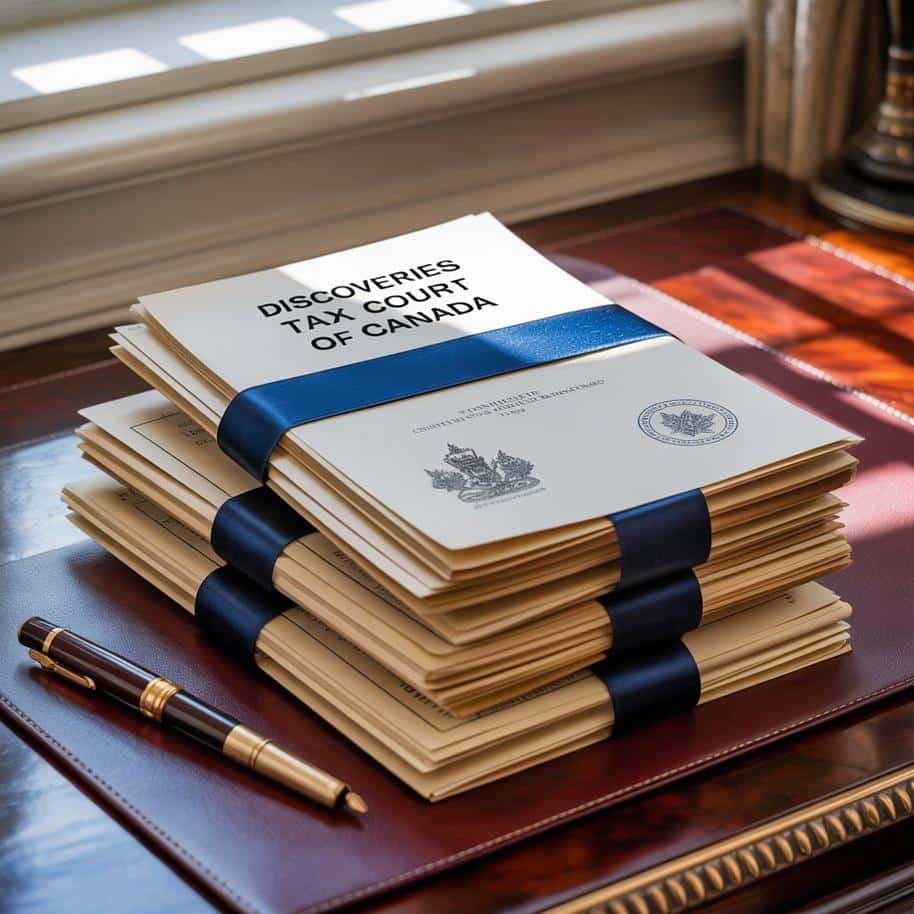Introduction: Stack v The King, 2024 TCC 137
In Stack v The King, 2024 TCC 137, the Tax Court of Canada blocked the Canada Revenue Agency’s attempt to obtain various documents, including an email record, that were protected by solicitor-client privilege.
Although the taxpayer’s accountant was one of the recipients of the targeted email, the court affirmed that solicitor-client privilege protects not only the communications between a lawyer and client but also the communications between a lawyer and the client’s agent, such as an accountant. The Stack decision highlights that a taxpayer cannot claim solicitor-client privilege over communications involving the taxpayer’s accountant unless the taxpayer or the taxpayer’s Canadian tax-litigation lawyers can establish a clear link between the accountant’s involvement and the confidential legal advice from the taxpayer’s lawyer.
This article first examines the CRA’s tax-audit powers under Canada’s Income Tax Act and the legislative protections that preclude the Canada Revenue Agency from obtaining legally privileged information. It then discusses the notion of solicitor-client privilege and the scope of its protections.
Afterwards, this article analyzes the Tax Court of Canada’s Stack decision, and it concludes by offering pro tax tips from our expert Canadian tax-litigation lawyers on protecting your legally privileged documents from the Canada Revenue Agency’s prying eyes.
The CRA’s Tax-Audit Powers & Protections for Solicitor-Client Privilege
Sections 231.1 and 231.2 of Canada’s Income Tax Act govern the Canada Revenue Agency’s tax-audit powers and information-gathering powers. The sections allow the CRA’s tax auditors to do any of the following in the name of enforcing or administering the Income Tax Act:
- inspect, audit, or examine any document belonging to the taxpayer or to any other person;
- examine any property belonging to the taxpayer or to any other person;
- enter any premises to examine documents or property; and
- require any person to provide any information or document pertaining to the taxpayer under audit.
These provisions also empower the CRA’s tax auditors to issue a requirement-for-information request, which is essentially a letter demanding that the recipient provide the Canada Revenue Agency with the various documents or information that the request identifies.
The Canada Revenue Agency can (and usually does) issue requirement-for-information requests to individuals and businesses in addition to the taxpayer under audit. If the CRA issues a requirement-for-information request to a person who then refuses to provide the requested information, section 231.7 of the Income Tax Act gives the Canada Revenue Agency the power to pursue a court order forcing that person to comply or face sanction.
Yet Canada’s Income Tax Act and the common law prohibit the Canada Revenue Agency from demanding information or documents falling under the ambit of solicitor-client privilege. The CRA cannot use any of the powers under sections 231.1, 231.2, and 231.7 to obtain information protected by solicitor-client privilege.
Thus, solicitor-client privilege ensures that communications between a lawyer and a client remain permanently protected from compelled disclosure—and away from the Canada Revenue Agency’s tax auditors and other agents.
What Is Solicitor-Client Privilege?
Solicitor-client privilege precludes a lawyer from being compelled to disclose any information that a client has given to the lawyer in confidence or any legal advice that the lawyer has given the client. In other words, a lawyer cannot be forced to reveal any information that may detriment a client’s case—even if the lawyer is under subpoena or other legal obligation to disclose information.
Subsection 232(1) of Canada’s Income Tax Act defines solicitor-client privilege as “the right, if any, that a person has in a superior court in the province where the matter arises to refuse to disclose an oral or documentary communication on the ground that the communication is one passing between the person and the person’s lawyer in professional confidence.” As the Income Tax Act‘s definition suggests, solicitor-client privilege is a legal right—in particular, the right to refuse to disclose in court any communications between you and your lawyer that pertain to legal advice.
The Supreme Court of Canada acknowledges that the justice system cannot function without the right of solicitor-client privilege:
The solicitor-client privilege has been firmly entrenched for centuries. It recognizes that the justice system depends for its vitality on full, free and frank communication between those who need legal advice and those who are best able to provide it. Society has entrusted to lawyers the task of advancing their clients’ cases with the skill and expertise available only to those who are trained in the law. They alone can discharge these duties effectively, but only if those who depend on them for counsel may consult with them in confidence.
The resulting confidential relationship between solicitor and client is a necessary and essential condition of the effective administration of justice: Blank v Canada, 2006 SCC 39, [2006] 2 SCR 319, at 330.
Because of its role in preserving the administration of justice, solicitor-client privilege is unique to the lawyer-client relationship.
No such privilege exists between taxpayers and their accountants, for instance. This is why your Canadian tax lawyer can refuse to disclose information to the Canada Revenue Agency, yet your Canadian tax accountant cannot. Section 231.7 of the Income Tax Act allows the Canada Revenue Agency to pursue a court order forcing your accountant to disclose information or face sanction, including contempt of court, which is a criminal offence.
Solicitor-client privilege covers a broad range of communications between a lawyer and client—so long as those communications relate to legal advice. Solicitor-client privilege “protects all communications, written or oral, between a solicitor and a client that are directly related to the seeking, formulating or giving of legal advice; it is not necessary that the communication specifically request or offer advice, as long as it can be placed within the continuum of communication in which the solicitor tenders advice”: Samson Indian Nation and Band v Canada, [1995] 2 FC 762, 1996 CanLII 3602 (FCA), at 769.
A document must satisfy three criteria to gain protection from solicitor-client privilege: (1) It must be a communication between lawyer and client, (2) it must entail the seeking or giving of legal advice, and (3) it must be intended to be confidential by the parties (Solosky v Her Majesty the Queen, [1980] 1 SCR 821, at page 837). One example of a privileged document is a tax-planning memorandum that a Canadian tax lawyer has prepared in confidence for a client.
Legal advice loses the protection of solicitor-client privilege if the client waives that protection. Moreover, an otherwise privileged communication may lose the protection of solicitor-client privilege if the parties’ conduct demonstrates that they didn’t intend to keep the communication secret—for example, by sharing an otherwise privileged document with a third party who isn’t a lawyer, such as an accountant.
Yet not all instances of sharing your lawyer’s advice with a third party constitute a waiver of solicitor-client privilege. For example, solicitor-client privilege persists when a party discloses a legal opinion to another party with a common interest in completing a transaction that is the subject of the opinion (e.g., see: Maximum Ventures Inc. v De Graaf, 2007 BCCA 510, at para 14).
In addition, solicitor-client privilege remains intact if information is shared with an accountant who serves as the client’s agent for the specific purpose of facilitating the legal engagement. Canada’s tax jurisprudence acknowledges two instances where a communication involving an accountant may still qualify for solicitor-client privilege:
- The communication was “prepared by the accountant as a result of a request by the [client’s] lawyer to be used in connection with litigation, existing or apprehended.”
- The accountant “is used as a [client’s] representative, or one of a group of representatives, for the purpose of placing a factual situation or a problem before a lawyer to obtain legal advice or legal assistance.” (Susan Hosiery Limited v. M.N.R (1969), 1969 CanLII 1540 (CA EXC), 69 DTC 5278, cited with approval in Imperial Tobacco Canada Limited v The Queen, 2013 TCC 144, at para 71.)
For example, your Canadian tax lawyer might direct your accountant to prepare an analysis that gives your lawyer a better understanding of your situation and allows the lawyer to provide you with confidential legal advice. Solicitor-client privilege will very likely apply to the accountant’s analysis.
Courts recognize that “the fact that [the accountant] is an accountant, or that he uses his knowledge and skill as an accountant in carrying out such task[s], does not make the communications that he makes, or participates in making, as such a representative, any the less communications from the principal, who is the client, to the lawyer; and similarly, communications received by such a representative from a lawyer whose advice has been so sought are none the less communications from the lawyer to the client.” Ibid., Susan Hosiery Limited.
Stack v The King, 2024 TCC 137
The facts in Stack v The King, 2024 TCC 137, are simple: The Canada Revenue Agency’s Canadian tax-litigation lawyer sought to obtain unredacted versions of various taxpayer documents—in particular, two reporting memoranda that the taxpayer had received from the taxpayer’s Canadian tax lawyer and a record of an email that was sent to the taxpayer’s accountant.
The taxpayer’s Canadian tax-litigation lawyer refused to release these documents on the basis of solicitor-client privilege. In response, the CRA’s Canadian tax-litigation lawyer filed a motion requesting that the Tax Court of Canada compel the taxpayer to produce the documents.
During the motion hearing, the court received unredacted versions of the reporting memoranda and the email record that the CRA sought to obtain. After privately reviewing the unredacted documents, the Tax Court of Canada agreed with the taxpayer’s Canadian tax-litigation lawyer and concluded that solicitor-client privilege covered all the requested documents. The court found that the two reporting memoranda consisted of “legal advice clothed entirely by solicitor-client privilege. Hence, they are protected and need not be produced, save in the redacted format they have already been.”
Although the requested email went to the taxpayer’s accountant and its title did not “explicitly disclose the integrated legal advice proffered by counsel to clients concerning a factual scenario,” the court determined after reviewing the document that it contained “protected confidential legal advice which is the subject of properly claimed solicitor-client privilege.” In reaching this conclusion about the email, the court affirmed the previous case law establishing that “[t]he use of an accountant as a representative in the course of obtaining legal advice or legal assistance for a client does not nullify otherwise privileged communications.”
Pro Tax Tips: Guarding Your Legally Privileged Information from the Canada Revenue Agency
Solicitor-client privilege precludes the Canada Revenue Agency’s tax auditors from learning about legal advice that you receive from your Canadian tax lawyer. Written tax opinions or tax-planning memoranda may reveal uncertain tax positions, which, if uncovered by the CRA, may leave you vulnerable during a CRA tax audit. As a result, Canadian taxpayers should ensure that all tax-planning documents benefit from solicitor-client privilege whenever possible.
No such privilege exists for Canadian tax accountants. Your conversations with an accountant, therefore, remain unprotected from a CRA compliance order. By refusing to disclose your information to the Canada Revenue Agency, your accountant may face sanctions, including contempt of court, which is a criminal offence. Moreover, solicitor-client privilege doesn’t apply retroactively. So, if you engage an accountant before retaining a Canadian tax lawyer, every document that your accountant prepared before your Canadian tax lawyer’s involvement will remain unprotected.
As a result, to safeguard your tax advice from the CRA, you should first consult with our expert Canadian tax lawyers. If you also require the assistance of an accountant, our Canadian tax lawyers can engage an accountant on your behalf and take measures to extend and preserve solicitor-client privilege. The Stack decision illustrates that, if solicitor-client privilege is correctly implemented, it protects not only the communications between you and your Canadian tax lawyer but also the communications between your Canadian tax lawyer and your Canadian tax accountant.
Legal privilege is a complex principle of evidence law, and it highlights the importance of seeking an experienced Canadian tax-litigation lawyer. So, consult our knowledgeable Canadian tax-litigation lawyers today. We thoroughly understand this area of law and will take all measures to ensure that your records benefit from solicitor-client privilege whenever possible.
FREQUENTLY ASKED QUESTIONS
What is solicitor-client privilege?
Solicitor-client privilege is a legal right—in particular, the right to refuse to disclose in court any communications between you and your lawyer that pertain to legal advice. In particular, solicitor-client privilege precludes a lawyer from being compelled to disclose any information that a client has given to the lawyer in confidence or any legal advice that the lawyer has given the client.
In other words, a lawyer cannot be forced to reveal any information that may detriment a client’s case—even if the lawyer is under subpoena or other legal obligation to disclose information. Solicitor-client privilege covers a broad range of communications between a lawyer and client—so long as those communications relate to legal advice.
Solicitor-client privilege applies to all communications arising in the context of a lawyer-client relationship, including oral, written, and electronic communications, and it extends to all aspects of the relationship, including consultations with a Canadian tax lawyer, legal advice from a Canadian tax lawyer, and representation by a Canadian tax lawyer. This means that solicitor-client privilege bars the Canada Revenue Agency from compelling your Canadian tax lawyer to reveal details about legal advice that you received.
Under what conditions does solicitor-client privilege apply?
Solicitor-client privilege “protects all communications, written or oral, between a solicitor and a client that are directly related to the seeking, formulating or giving of legal advice; it is not necessary that the communication specifically request or offer advice, as long as it can be placed within the continuum of communication in which the solicitor tenders advice”: Samson Indian Nation and Band v Canada, [1995] 2 FC 762, 1996 CanLII 3602 (FCA), at 769.
A document must satisfy three criteria to gain protection from solicitor-client privilege: (1) It must be a communication between lawyer and client, (2) it must entail the seeking or giving of legal advice, and (3) it must be intended to be confidential by the parties (Solosky v Her Majesty the Queen, [1980] 1 SCR 821, at page 837). One example of a privileged document is a tax-planning memorandum that a Canadian tax lawyer has prepared in confidence for a client.
I’m currently undergoing a CRA tax audit. What happens if I refuse to provide the information that the CRA tax auditor has requested?
Sections 231.1 and 231.2 of Canada’s Income Tax Act govern the Canada Revenue Agency’s tax audit and information-gathering powers. These provisions empower the CRA’s tax auditors to issue a requirement-for-information request, which is essentially a letter demanding that a taxpayer turn over specified documents or information. If you refuse to produce the requested information, the Canada Revenue Agency can, under section 231.7 of the Income Tax Act, pursue a court order forcing you to comply or face court sanction.
My accountant says that our discussions are confidential and that I don’t need a Canadian tax lawyer because my accountant can refuse to disclose information about me to the Canada Revenue Agency. Is this true?
No. Because of its role in preserving the administration of justice, solicitor-client privilege is unique to the lawyer-client relationship. So, while solicitor-client privilege allows your Canadian tax lawyer to refuse to disclose information to the Canada Revenue Agency, no such privilege exists for accountants.
As a result, your Canadian tax lawyer can refuse to disclose information to the Canada Revenue Agency, yet your Canadian tax accountant cannot. Section 231.7 of the Income Tax Act allows the Canada Revenue Agency to pursue a court order forcing your accountant to disclose information or face sanction, including contempt of court, which is a criminal offence.
An accountant gains the benefit of solicitor-client privilege only if the accountant acts as your agent for the purposes of facilitating the lawyer’s engagement. For example, if your Canadian tax lawyer directs your accountant to prepare an analysis that gives your lawyer a better understanding of your situation and allows the lawyer to provide you with confidential legal advice, then solicitor-client privilege will very likely apply to the accountant’s analysis. But without the involvement of a Canadian tax lawyer, your accountant’s files can be seized by the CRA.
DISCLAIMER: This article just provides broad information. It is only up to date as of the posting date. It has not been updated and may be out of date. It does not give legal advice and should not be relied on. Every tax scenario is unique to its circumstances and will differ from the instances described in the article. If you have specific legal questions, you should seek the advice of a Canadian tax lawyer.



